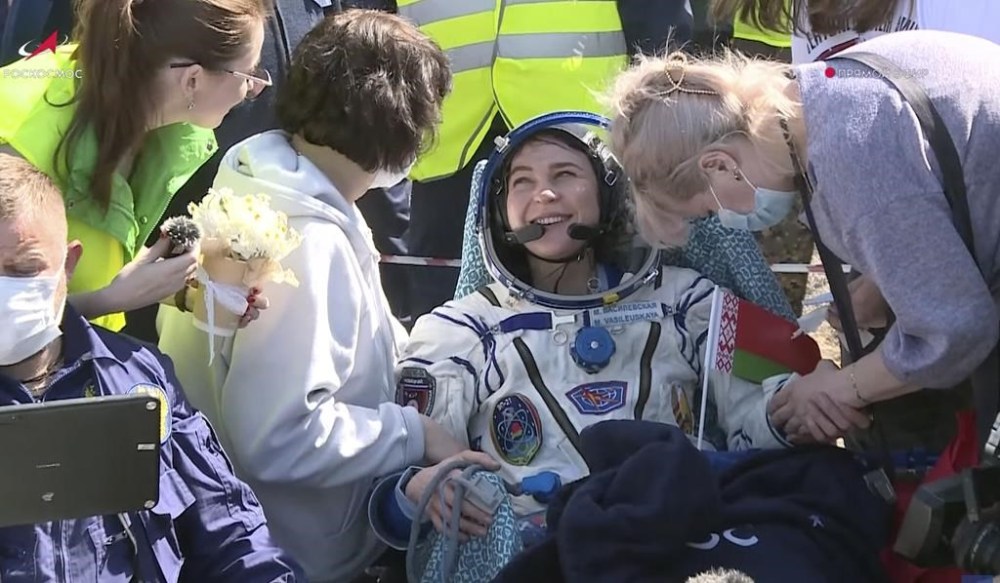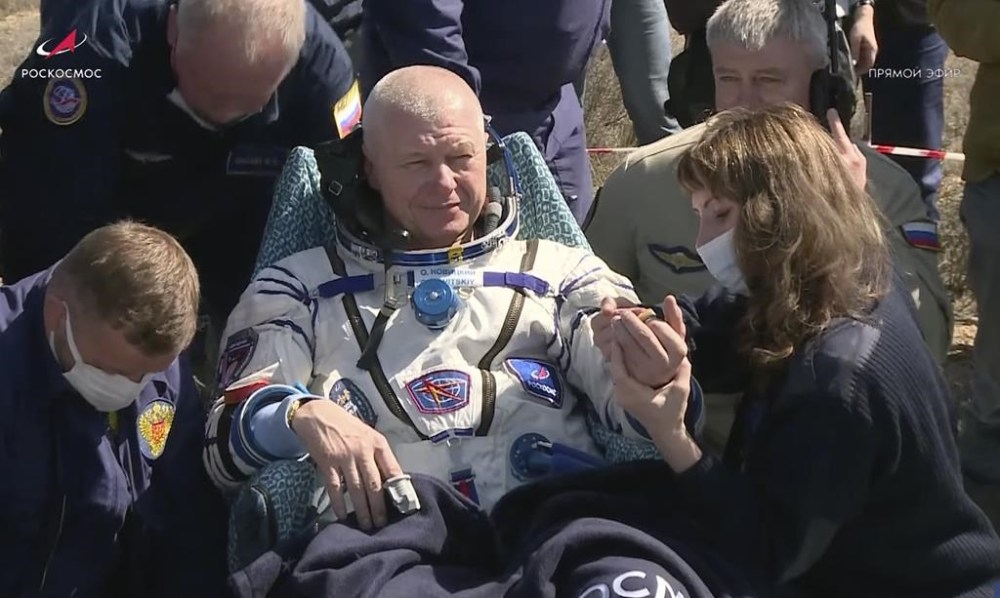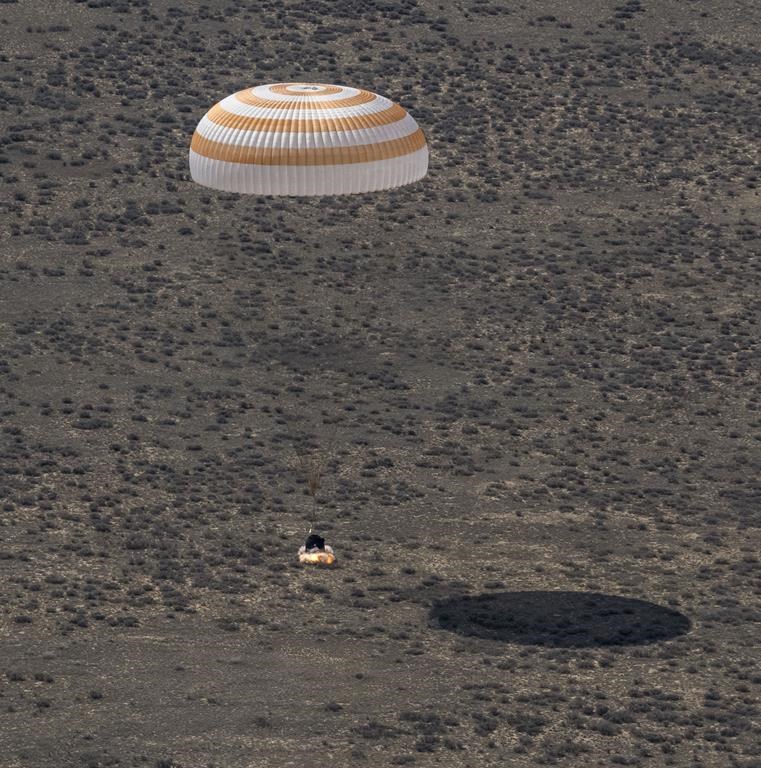A Soyuz capsule carrying 3 crew from the International Space Station lands safely in Kazakhstan
Advertisement
Read this article for free:
or
Already have an account? Log in here »
To continue reading, please subscribe:
Monthly Digital Subscription
$0 for the first 4 weeks*
- Enjoy unlimited reading on winnipegfreepress.com
- Read the E-Edition, our digital replica newspaper
- Access News Break, our award-winning app
- Play interactive puzzles
*No charge for 4 weeks then price increases to the regular rate of $19.00 plus GST every four weeks. Offer available to new and qualified returning subscribers only. Cancel any time.
Monthly Digital Subscription
$4.75/week*
- Enjoy unlimited reading on winnipegfreepress.com
- Read the E-Edition, our digital replica newspaper
- Access News Break, our award-winning app
- Play interactive puzzles
*Billed as $19 plus GST every four weeks. Cancel any time.
To continue reading, please subscribe:
Add Free Press access to your Brandon Sun subscription for only an additional
$1 for the first 4 weeks*
*Your next subscription payment will increase by $1.00 and you will be charged $16.99 plus GST for four weeks. After four weeks, your payment will increase to $23.99 plus GST every four weeks.
Read unlimited articles for free today:
or
Already have an account? Log in here »
Hey there, time traveller!
This article was published 06/04/2024 (608 days ago), so information in it may no longer be current.
MOSCOW (AP) — A Russian space capsule with two women and one man safely landed in a steppe in Kazakhstan on Saturday after their missions aboard the International Space Station.
The Soyuz MS-24 carrying Russia’s Oleg Novitsky, NASA’s Loral O’Hara and Marina Vasilevskaya of Belarus touched down southeast of the remote town of Dzhezkazgan at 12:17 p.m. Kazakh time (0717 GMT).
Those remaining at the orbiting outpost are NASA astronauts Michael Barratt, Matthew Dominick, Tracy Dyson and Jeannette Epps as well as Russian cosmonauts Nikolai Chub, Alexander Grebenkin and Oleg Kononenko.

O’Hara arrived at the International Space Station on Sept. 15, 2023, spending a total of 204 days there, NASA said.
Novitsky and Vasilevskaya blasted off to space on March 23, two days later than initially planned. The launch of a Soyuz spacecraft carrying them and Dyson, scheduled for March 21, was aborted at the very last minute due to a voltage drop in a power source, according to Yury Borisov, head of Russia’s space agency Roscosmos.
The delay resulted in a two-day, 34-orbit trip to the space station for the crew. If the launch had gone as scheduled, the journey would have been much shorter, requiring only two orbits.
The space station, which has served as a symbol of post-Cold War international cooperation, is now one of the last remaining areas of collaboration between Russia and the West amid tensions over Moscow’s military action in Ukraine. NASA and its partners hope to continue operating the orbiting outpost until 2030.
Russia has continued to rely on modified versions of Soviet-designed rockets for commercial satellites, as well as crews and cargo to the space station.



